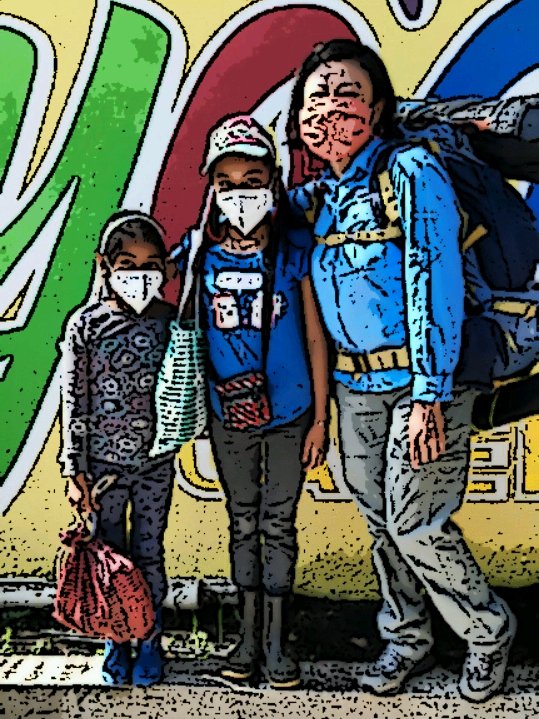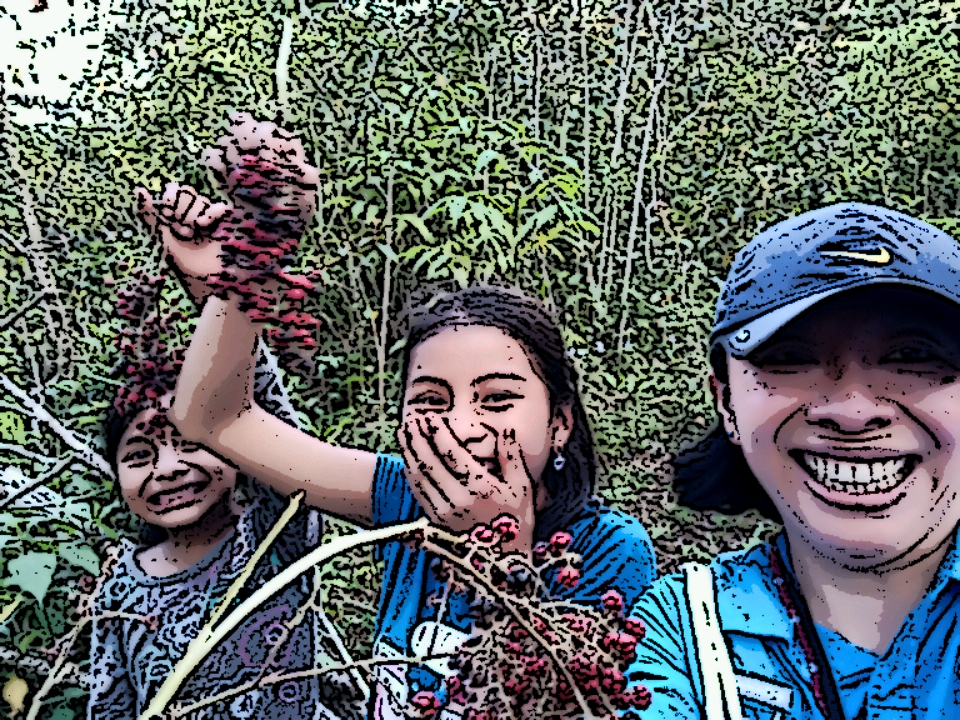Walking for at least six hours on trails across the mountain to leave a community could be appealing for those of us with an adventurous spirit. However, when that journey is the only option someone has to access services like education beyond elementary level, health and other citizens’ rights; such fact represents another obstacle to achieving personal well-being, which remains a privilege of a few, due to extreme historical inequality.
This is part of the reality in the daily life of the family of two little girls whom we accompany in several programs of Yo’o Guatemala. For them, traveling from their community, “El Pacayal”, to the main town, and vice versa, involves leaving home before dawn, so they can reach their destination before nightfall.
To experience what the girls have to go through, every time they leave the Yo’o Guatemala’s Student Residence -located in the urban area-, to return home and stay with their family; I asked their parents for permission to accompany them on one of their trips and spend the night in their home. I also shared with the parents the list of the supplies I would bring in my backpack, intending not to charge them for any additional expense during my stay.
Me and the youngest of the girls kept the countdown to the day when we would embark on the trip together, talking about how we will sing and jump while walking through the mountains.
3, 2, 1… The day has arrived! We left by bus from the urban zone of Purulhá to “La Unión Barrios” village located in Salamá. When we got there, we boarded a tuc-tuc and traveled on a dirt road to the mountainside, an area known as “El Pinar”.

Uncertain if the girls, ages 8 and 11, remembered precisely the path to their house, I was 1000% alert in case we took the wrong route. At each boarding point, I sent text messages to their father, who authorized the girls to travel exclusively with me, until we met one of his sons deep into the mountain. The boy left his house with a beast of burden to help me with my luggage, roughly 40-pound consisting of a backpack, a cloth bag, and a small sack.
As we headed to a beaten path to reach “El Pacayal”, our hike was reduced to 2.5 hours, a trip that the three of us keep remembering with joy. During the journey, the eldest of the girls identified footprints in the mud to deduce who had passed along the path and in what direction.
Together, we splashed in about ten streams that came down from the mountain, seeking their way through the vegetation. We concluded that on this path there were about five kinds of wild flowers that colored the green of the mountain. Moreover, we made out the “Cerro Mocohán” which is located in about two kilometers from the urban area.
To cross private land, we passed through gates made of wire and sticks. We snacked on bananas, bread with cottage cheese and water, we sang and jumped. A few meters before reaching the house of the girls’ family, we tasted wild blackberries and guavas hanging from the fruit trees.
To romanticize the effort of the peasants, who work 12 hours a day to earn Q50 (US$6.38) on average. To feel tenderness for a girl who smiles, even though she lacks of access to piped water and lives in a house without drainage; a house that is just one room made of boards and sheets through which the cold penetrates. All of this prevents us from seeing the structural problem of poverty and inequality that exist in the country.
That night at the girls’ house, I managed to cry silently as best as I could; thinking about the continual gap between what happens in that house where they were born, and the Student Residence where Yo’o Guatemala provides them with comprehensive care, food, health, housing, education, clothing and recreational activities.
This gap between two very different realities goes beyond walking six hours through the mountains, or the beaten path that the families of “El Pacayal” found to access their community by walking for about two hours.
Reducing the inequality gap and multidimensional poverty requires structural changes. Some of those changes include: to strengthen each girl’s self-esteem; have the support of the family and mutual accompany in community, which allows us to unlearn and learn, together, what is necessary to co-build sustainable, culturally adaptable and comprehensive solutions.
Thanks to a friend who is a volunteer in Yo’o Guatemala, whom I appreciate and admire very much, now I can name and “give shape” to what I experienced that night in April 2022: my level of awareness of the reality had increased.

To achieve the common good… How aware of reality we are? How aware of those things on which we should focus our individual talents and abilities? What ordinary actions can we carry out, with extraordinary love, to contribute to building a better future for all people?
This article was translated by a team of volunteers of Yo’o Guatemala. Thank you, Rebeca, Ulises and Monse! 💚


